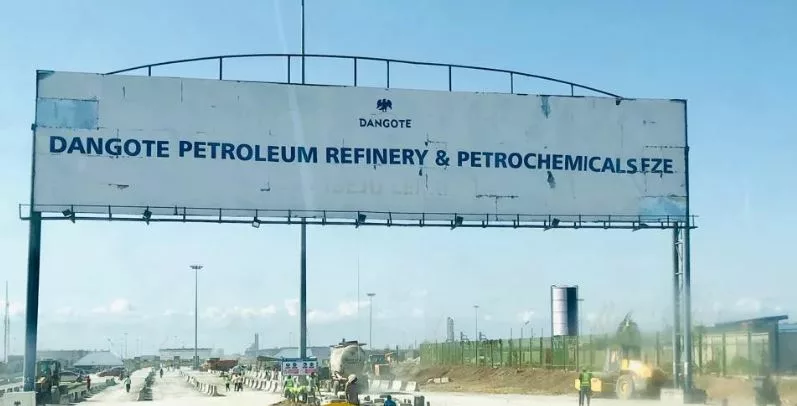A medium term crude import template by Dangote Refinery has revealed that US crude oil could remain a staple feedstock to sustain the facility’s functionality.
The refinery has courted another year’s worth of West Texas Intermediate, WTI Midland supply despite ample availability for domestic grades.
In a tender set to close May 21, Dangote has sought to lock in 2 million barrels per month of WTI Midland crude oil from July 2024, in a proposed 12-month offtake agreement, according to terms reported by S&P Global Commodity Insights.
While the refinery is geared towards processing Nigerian grades, WTI crude has represented around a third of its crude imports since December, according to S&P Global Commodities at Sea data, with the feedstock processed in some of the plant’s first test runs on the year.
According to CAS, the refinery took delivery of 11 WTI cargoes, or 9 million barrels, between February and May, contrasting with around 18 million barrels of Nigerian crude deliveries.
The move to secure a longer-term offtake agreement signals a commitment by the refinery to more permanently diversify its crude sources, coinciding with a period of extreme demand weakness for Nigerian supply.
“It’s a little surprising that they are seeking term WTI at this stage,” said one West African crude trader, noting demand weakness that pushed Nigeria’s flagship Bonny Light crude to a discount to Dated Brent for the first time since November on May. 17.
According to Platts assessments Bonny Light FOB Nigeria premiums flipped to a discount of 5 cents/b to Dated Brent on May 17, down from a premium of 70 cents/b the previous week.
Platts is a part of S&P Global Commodity Insights.
“Domestically of course there will be dismay that they are turning to non-Nigerian crude and hence not supporting the country’s own production,” he said, pointing to pressure at home for the refinery’s operations to support the ailing crude market.
Yet so long as international grades remain competitive to domestic supply, the refinery will continue to optimize accordingly, as it considers cost advantage and supply certainty.
“My assumption is that they see WTI Midland as likely always being a competitive valued barrel, even vs FOB Nigerian and at least in this stage of the refinery’s startup to full capacity,” said the trader.
The Nigerian National Petroleum Company (NNPC) also 20 per cent equity holder in the project, has been widely expected to supply the bulk of Dangote’s crude demands, selling to the refinery in USD due to its location in the Lekki free zone.
Yet while the producer may be able to fulfil the refinery’s crude requirements during its ramp-up, it could struggle to exclusively fulfil demand from Dangote at full utilization, while leaving the refiner exposed to supply disruptions.
To date, the refinery has only taken delivery of Nigerian and US crude grades, but it could increasingly seek alternative term contracts with alternative supply sources as it scales production, traders have speculated.
“It’s not unexpected that they would seek to cover base requirements for the refinery through term business in the same way for example some of Indian refiners do with Middle Eastern crude,” said one source.
As the refinery’s management has continued to signal ambitious timelines for delivery of its first gasoline supplies to the domestic market, considerations around supporting crude revenues could also take a backseat.
Speaking at the Africa CEO Forum Annual Summit in Kigali, refinery owner Aliko Dangote announced that Nigeria would have no need to import “a drop” of petrol from June, pledging that new supply from the refinery would end a historic reliance on the fuel grade in the coming weeks, according to reports from local media.
With the government expected to be partially subsidizing costs for continued gasoline exports, the first supplies from the refiner would ease pressure on the national budget, though S&P analysts have said the first gasoline supplies are unlikely to arrive before Q3 2024.
“For now the key concern for Abuja is whether the refinery is able to produce petrol, and therefore how soon they can actually get on with subsidy removal that relieves massive pressure on public finances. So while that’s the first priority, I suspect they won’t mind so much where the crude comes from,” said Clementine Wallop, director for sub-Saharan Africa at political risk consultancy Horizon Engage.
At full capacity, the 650,000 b/d refinery is expected to yield some 327,000 b/d of gasoline, however timelines and volumes to be allocated domestically remain uncertain.
Representatives for Dangote were not available to comment on crude supply plans for the site.





